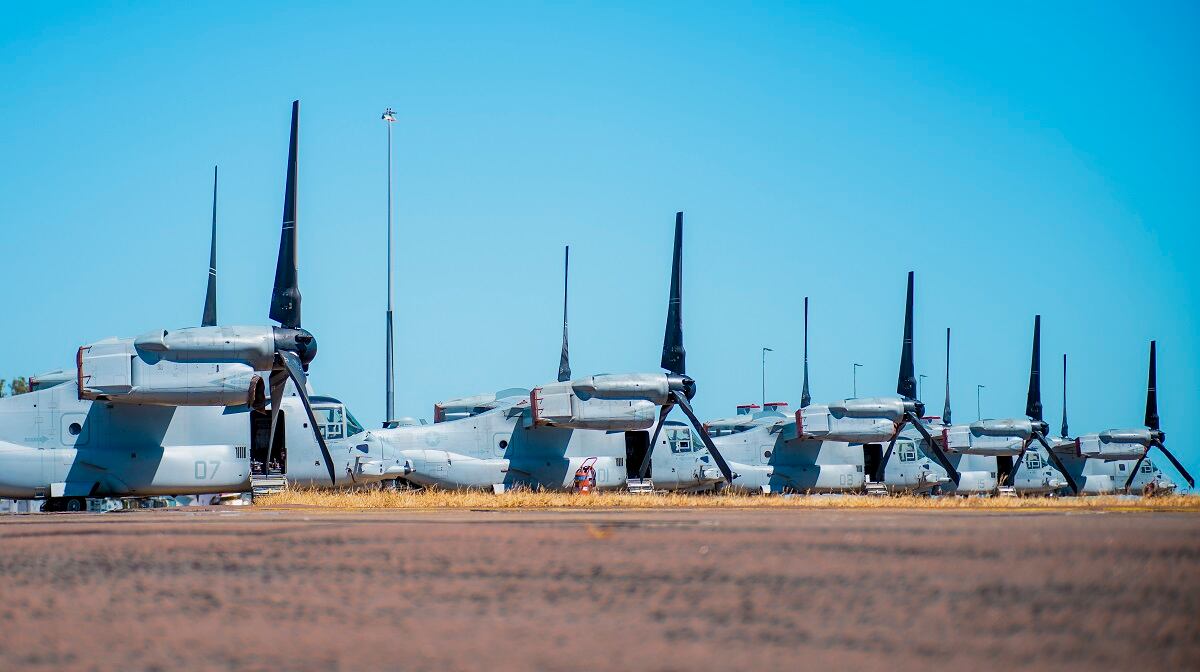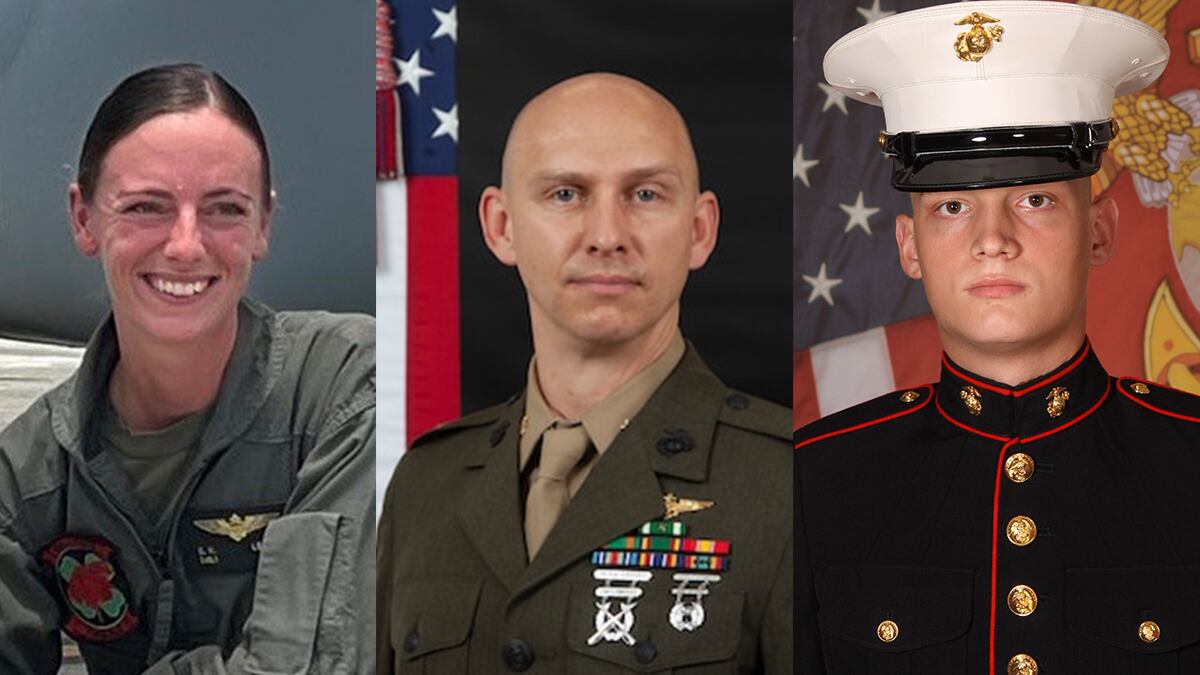The Marine Corps has named the three Marines who were killed in an MV-22 Osprey crash Sunday morning in Australia during a multinational training exercise.
The Marines who died are Cpl. Spencer R. Collart, 21, an Osprey crew chief from Arlington, Virginia; Capt. Eleanor V. LeBeau, 29, an Osprey pilot from Belleville, Illinois; and Maj. Tobin J. Lewis, 37, from Jefferson, Colorado, according to a news release from Marine Rotational Force-Darwin, Australia.
Lewis was the executive officer of Marine Medium Tiltrotor Squadron 363, the Marines’ unit based at Kaneohe Bay, Hawaii.
Of the remaining 20 Marines who were on the Osprey when it crashed on Melville Island, north of Darwin, Northern Territory, Australia, three remain in Royal Darwin Hospital. One is in critical condition, and two are in stable condition, according to the release Tuesday morning local time.
RELATED

The remaining 17 Marines were taken to Royal Darwin Hospital, treated for minor injuries and released, according to the release.
The cause of the crash is under investigation.
“We are deeply saddened by the loss of three respected and beloved members of the MRF-D family,” Col. Brendan Sullivan, commanding officer of the rotational force, said in the release. “Our thoughts and prayers remain with the families and with all involved.”
Collart enlisted in the Marine Corps in October 2020 and was promoted to corporal in February, according to the release. He previously served in Pensacola, Florida, and Jacksonville, North Carolina.
His awards included the National Defense Service Medal, Global War on Terrorism Service Medal and Sea Service Deployment Ribbon.
LeBeau was commissioned in the Marine Corps in August 2018 and was promoted to the captain in March, according to the release. She previously served in Pensacola, Florida; Corpus Christi, Texas; and Jacksonville, North Carolina.
Her awards included the National Defense Service Medal, Global War on Terrorism Service Medal and Sea Service Deployment Ribbon.
Lewis commissioned in August 2008 and was promoted to major in October 2018. He previously served in Pensacola, Florida; Corpus Christi, Texas; Jacksonville, North Carolina; and Okinawa, Japan.
He received two Navy and Marine Corps Commendation Medals, the Navy and Marine Corps Achievement Medal, Navy Unit Commendation, National Defense Service Medal, Global War on Terrorism Expeditionary Medal, Global War on Terrorism Service Medal and four Sea Service Deployment Ribbons, according to the release.
Lewis had logged more than 1,800 military flight hours, including more than 1,500 in the Osprey, according to his official bio.
“At present, we remain focused on required support to the ongoing recovery and investigative efforts,” Sullivan said in the release.
The commander expressed his thanks to the Australian Defence Force, Northern Territory Police, Northern Territory Government, CareFlight Air and Mobile Services, NT Health, National Critical Care and Trauma Response Center and Tiwi Island Government for their help.
Approximately 2,000 Marines and sailors deploy to Darwin, Australia, from April to October as part of Marine Rotational Force-Darwin, according to the release. The U.S. service members there train with the Australian military and other regional allies and partners in the Indo-Pacific — a region that the Marine Corps has made its focus as it keeps its eye on the Chinese military.
The other Marines who were aboard the Osprey crash came from Marine Medium Tiltrotor Squadron 363 and 3rd Battalion, 1st Marine Regiment, an infantry unit based at Camp Pendleton, California, according to the release.
The deaths of the three Marines in Australia came just days after Marine Maj. Andrew Mettler died in an F/A-18D Hornet crash near Marine Corps Air Station Miramar, California.
Before Sunday, there had been five fatal crashes of Marine Ospreys since 2012, causing a total of 16 deaths.
The latest was in June 2022, when five Marines died in a fiery crash in a remote part of California east of San Diego. A crash investigation report in July found that the tragedy was caused by a mechanical failure related to a clutch.
There had been 16 similar clutch problems with the Marine Ospreys in flight since 2012, the report found. But no problems have arisen since February when the Marine Corps began replacing a piece of equipment on the aircraft, the report said.
The Associated Press contributed to reporting.
Irene Loewenson is a staff reporter for Marine Corps Times. She joined Military Times as an editorial fellow in August 2022. She is a graduate of Williams College, where she was the editor-in-chief of the student newspaper.





